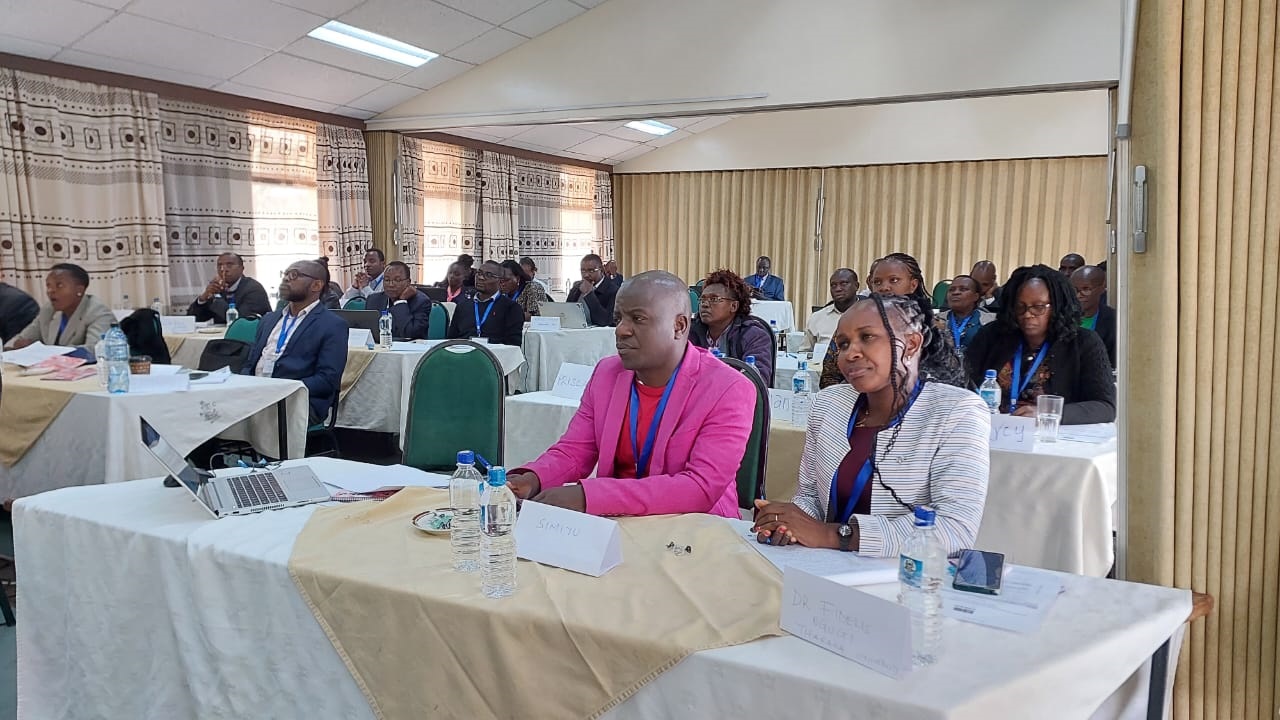
Workshop Creates Awareness on UNESCO Chair on Bioethics' Role in Guiding Research Ethics and Regulatory Compliance in Kenya
Egerton University recently played host to a three-day training workshop on the research proposal and protocol ethics review. Organized by the Kenya National Commission for UNESCO (KNATCOM) in collaboration with the National Commission for Science, Technology, and Innovation (NACOSTI) and the Egerton University UNESCO Chair on Bioethics and Documentation Centre, the event aimed to train Institutional Scientific and Ethics Review Committees (ISERCs) members from various research institutions, universities, and hospitals in Kenya.
Dr. David Nderitu, the Coordinator of the UNESCO Chair on Bioethics and Regional Documentation Centre based at Egerton University, expressed his delight at the opportunity to sensitize the Egerton University fraternity on the significance of the UNESCO Chair on Bioethics in assisting reviewers, researchers, and students to familiarize themselves with ethical issues in research and regulatory requirements in Kenya.
The event attracted participants from various institutions and universities, who were keen to learn more about ethical issues in research and regulatory requirements in Kenya. They received certificates of participation upon completion of the course, which was held at the ARC Lord Egerton Conference Room 1 & 2 at Egerton University.
Prof. Raphael Ngure, who represented the Vice Chancellor and Director of Research during the opening of the training, lauded the initiative, saying that it was a great honor for Egerton University to host the training under the auspices of the UNESCO Chair on Bioethics.
ISERCs play a critical role of ensuring ethical research and assuring quality in matters of research. ISERCs are chiefly concerned with the scientific and ethical designs of the protocols they review prior to approving (perhaps requesting revisions and resubmission) or disapproving them. Given their work, Kenya has established educational programs for ISERCs’ chairpersons and members. The training and capacity building aims at reinforcing the bioethics capacities of the committee members. One of the requirements for accreditation of ISERCs is that the members should have basic training in research ethics and leadership. ISERC members are also expected to be up to date with the rapid advances in bioethics. This requires frequent skills upgrading and refresher courses for the members. Various institutions have made applications to NACOSTI for support in establishing and accreditation of ISERCs. There has also been a high demand and request for training of members in research ethics.
The training was instrumental in creating awareness about the role of the UNESCO Chair on Bioethics in assisting reviewers, researchers, and students to familiarize themselves with ethical issues in research and regulatory requirements in Kenya.
Dr. Nderitu further noted: “The workshop is instrumental in creating awareness about the role of the UNESCO Chair on Bioethics in assisting reviewers, researchers, and students to familiarize themselves with ethical issues in research and regulatory requirements in Kenya.”
Participants received certificates of participation upon completion of the course. The event was a success and is expected to have a positive impact on the quality of research conducted in Kenya.
By Kurian Musa
Email: This email address is being protected from spambots. You need JavaScript enabled to view it.








